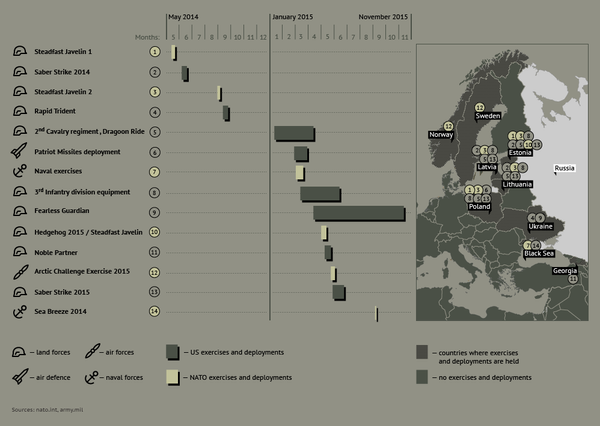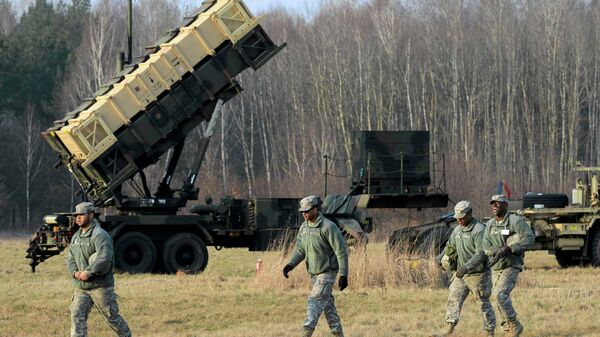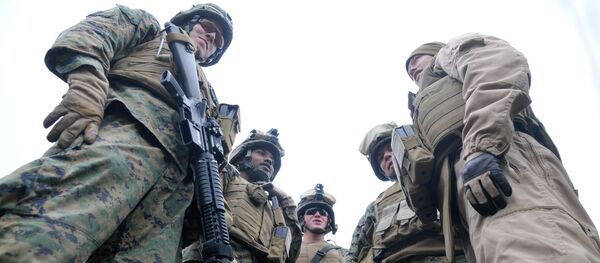The standoff could last years or even decades, according to the Pentagon chief, who defended the US and NATO's intensified war-games, expanded military presence on the borders with Russia and increasingly belligerent rhetoric.
"The adaptations I was talking are specifically in anticipation that Russia might not change under Vladimir Putin, or even thereafter," US Defense Secretary Ash Carter told journalists while on a plane to Europe, calling it a "strong but balanced" approach to Moscow.
The Pentagon chief also noted that he was not sure whether Putin would change his policies, referring to the Kremlin's course as "backward-looking."
"The United States at least continues to hold out the prospect that Russia, maybe not under Vladimir Putin, but maybe sometime in the future, will return to a forward-moving course, rather than a backward-looking course," Carter stated.
Western countries blame Russia for meddling in Ukraine's affairs and posing a threat to its European neighbors. Moscow has always denied these groundless claims, pointing out that the West put European security and stability in jeopardy long before a civil war in Ukraine broke out.
The US-led alliance also intensified its war-games (at least four major military drills were scheduled for June alone) and created a Very High Readiness Joint Task Force (VJTF). Tasked with tackling security challenges, the force seems to be a security challenge in itself.
Additionally, the United States is reportedly planning to station heavy weaponry to Eastern Europe and the Baltics and even contemplating deploying nuclear missiles to Europe under the unfounded pretext that Russia violated the INF treaty by testing a ground-launched ballistic missile that had a range between 500 and 5,500 kilometers.



